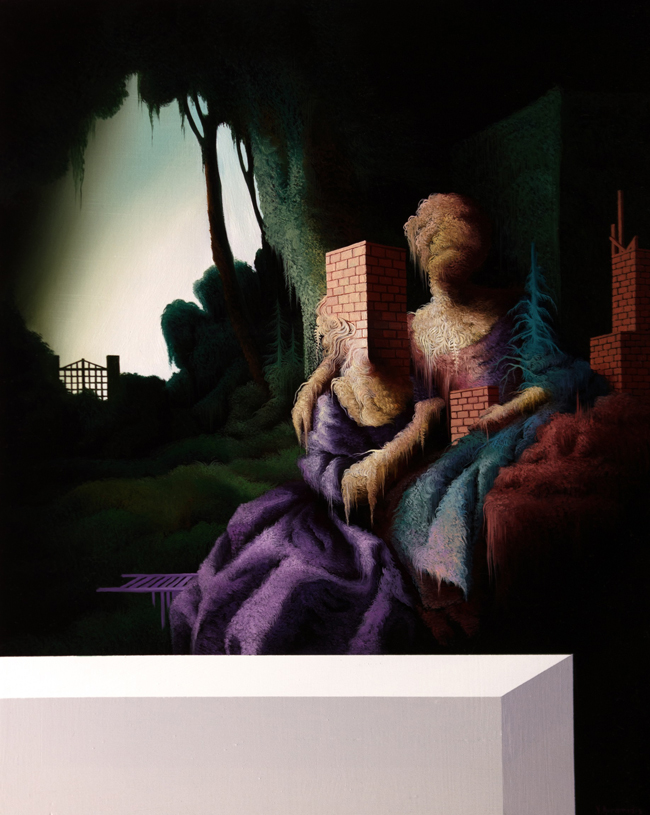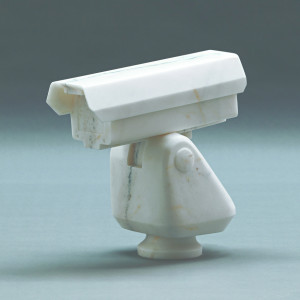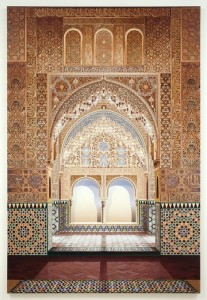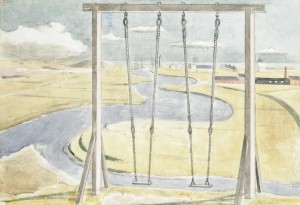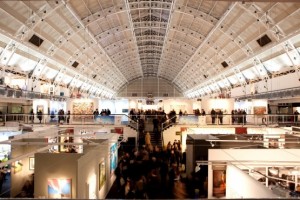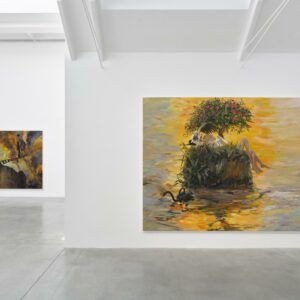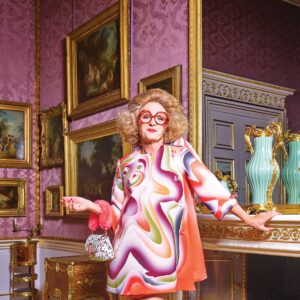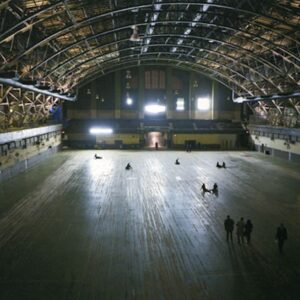1.If you weren’t an artist, what else would you be?
I really don’t know.
2. Can you tell us more about your work and what are the main ideas you would like to express?
The latest paintings are about the human mark on the course of time. What stays, and how it is perceived. They refer to painting language, painting history and architecture.
3. How do you start the process of making work?
Like most artists, thinking, researching, and sketching. And sometimes the act of painting opens up much more interesting routes, than what was initially planned.
4. Do you consider the viewer, when making your work?
There are many different audiences for art. I just hope there are viewers with whom the work can communicate. I also consider myself as a viewer.
5.Name 3 artists that have inspired your work.
Lately, many European painters from the Baroque and Rococo era. I’ve also been influenced by 20th century artists like De Kooning and by minimalist sculpture and architecture.
6.What defines something as a work of art?
I guess if something is presented as art, then it’s probably art. And then every viewer has their own judgement system as to how they perceive it, and how good it is. We don’t have to define it.
7.Anytime, any place – which artist’s body would you most like to inhabit?
I wouldn’t. But I’d like to witness how art was made in different periods.
8.What was the most intelligent thing that someone said or wrote about your work?
I’ve had some defining conversations based around my work from time to time, most of them with colleagues or with people at college, but I cannot pick just one, or take out a phrase.
9.Which artists would you most like to rip off, sorry, I mean appropriate as a critique of originality and authorship?
Painting has a rich history, and I am always excited when visiting museums, as most artists are. All this information, however, translates differently to every artist and viewer. This work, for example, refers to a visual language of certain art history periods, as I consider it something critical to work with, in order to develop my own painting language. So, I wouldn’t stick to particular artists as reference.
10.Do you care what your art costs? State your reasons!
It’s positive when artists can finance their practice or part of it. I’ve recently graduated my MA, so prices are at this level. I’m just happy whenever the work is appreciated and acquired by someone, and takes it’s course.
11.What’s next for you?
A new series of paintings, which has already started.
You can see Vasilis Avramidis with ‘Resort Archaeologies’ at London Art Fair 2014 in the Art Projects area presented by The Contemporary London Stand P16 .
Resort Archaeology
Resort Archaeologies is a series of new oil paintings by Vasilis Avramidis, which experiment with concepts surrounding the history of painting, the human mark and the passing of time.
Avramidis’ world of intensely detailed, atmospheric, surreal oil paintings skillfully and delicately depicts uncanny private worlds, idealised images from the past and decadent earthly paradises. Where ‘place’ is usually established by the presence of humanity Avramidis’ paintings are marked by human absence. Instead his ‘resorts’ feature architectural fragments in disrepair rooted in the infinity of overgrown diachronic landscapes. Avramidis’ imagery of ‘non-place’ contemplate ideas of humanity, loss and time. Conceptually and literally the works are located between a vanitas concept, echoing the human effort to reason with the finitude and mortalisation of time.
By indulging us with images and rich palettes that tantalise the imagination, we celebrate images of opulence, fantasy, transience, the remote and beautiful, and a struggle for the ideal through the passing of time. These works transport and transcend, creating an uncanny window of escapism through which to contemplate human histories.
www.londonartfair.co.uk/Exhibitor/The-Contemporary-London
ENTER The Contemporary London’s Competition to WIN tickets to The London Art Fair HERE
